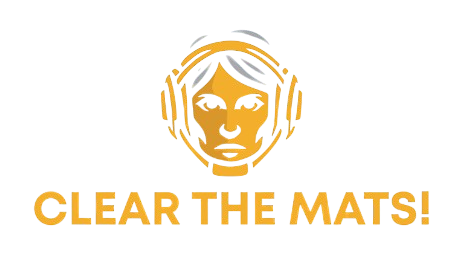One thing many young wrestlers and their parents tend to overlook is that wrestling isn’t just a physical battle — it’s a mental one too. While most young athletes focus heavily on what happens on the mat, mental preparation often takes a back seat.
For many, nerves are simply part of the experience — be it a fear of losing, performing in front of a crowd, or just not feeling ready, anxiety has a way of creeping in.
If you want to help prevent these issues, keep reading. You’ll find simple, effective strategies to calm nerves, build confidence, and create a routine that helps both young athletes and their parents feel more prepared and in control.
Understanding Pre-Match Nerves
Getting nervous before the match is a completely normal behavior. In fact, it shows that your child actually wants to perform well. The jitteriness can help them sharpen their focus and boost their energy if they manage it properly. It’s when these nerves turn into overwhelming anxiety that it starts to hurt their performance, causing them to freeze, forget techniques, or even doubt themselves.
Here, parents can play a big role in spotting the difference. If you see your child being unusually withdrawn, upset, or saying that their stomach aches before a match, this means that it might be more than typical nerves. Staying active, listening, and talking openly about feelings can help young athletes feel supported and less alone in their experiences.
Mental Preparation Techniques for Wrestlers
Visualization and Mental Rehearsal
Start by making your young wrestler close their eyes and mentally make them walk through a match in their mind with every move and win. By visualizing success athletes can build confidence, which can help them feel ready before stepping on the mat.
Controlled Breathing and Relaxation
Using simple breathing exercises like inhaling for four counts and exhaling for four can do wonders. Practicing these before every match can calm their nerves, and slow down their racing hearts, creating a sense of control.
Positive Self-Talk
What these young athletes think about themselves really matters. You will need to help them create a few go-to phrases like “I’m ready”, “I’ve got this” or “I’ve been waiting for this”. Saying these phrases repeatedly can build confidence and push away any doubt in their mind.
Routine Development
Create a consistent pre-match routine that should include stretching, music, or even a lucky snack to give your young wrestler something familiar to rely on. These routines don’t just bring familiarity but also help build a structure that can aid in easing anxiety and keeping them focused.

Role of Parents in Supporting Mental Readiness
Emphasize Effort Over Outcome
Any good parent would let their child know that it’s their efforts that count and not the scoreboard. Praising them for their hard work and improvement can teach them the value of growth and not just winning. Reducing any pressure on their shoulders related to performance.
Provide Unconditional Support
Regardless of whether they win or lose. Parents have to make sure their child knows that they are proud of them. Reminding them that their actual worth doesn’t revolve around results can help them build confidence and emotional resilience.
Maintain Composure
Most kids feed off their parents’ emotions. This means that you will also need to stay calm and collected on the match day allowing your child to do the same. Your energy sets the tone for your child, so keep it steady and be supportive.
Encourage Open Communication
Talk to your young wrestlers about how they feel before and after the match and let them share their thoughts without judging them. Just the act of being heard can calm their anxiety and create a deep bond between you both.
Building Confidence Through Practice and Preparation
Consistent Training
Building confidence and practicing go hand in hand. Regular training can help young wrestlers sharpen their skills and make them feel more prepared when it’s time to compete. The more consistent their efforts are the more naturally and automatically they can move.
Goal Setting
Assist your kid in making new small and achievable goals like mastering new moves or staying aggressive through a full match. These goals can help them build motivation, and create a sense of direction and progress without burdening them.
Celebrate Progress
Every little improvement is worth celebrating. It could be better footwork or as simple as showing up with a better attitude — recognizing these growths can keep your child’s spirit high and encourage them to keep growing.
Managing Expectations and Avoiding Burnout
Balance in Activities
Wrestling is important, but it should not be the be-all and end-all of your child’s life. Don’t stop your children from exploring new interests, whether it is music, art, or hanging out with friends. Having a well-rounded routine can keep things fresh for your young athlete and prevent burnout.
Rest and Recovery
Downtime is a necessity and not inactivity. Mental and physical rest can help your wrestler recharge and come back better and stronger. You have to make sure that they take breaks between intense training and get enough sleep to stay sharp and healthy.
Monitor for Signs of Stress
Keep an eye out for mood changes, lack of motivation, or physical complaints — these are all signs that your wrestler is overwhelmed. Check on them regularly and adjust their schedule if needed to keep things manageable.
Final Thoughts
Being mentally prepared is just as crucial as physical training when it comes to wrestling. Parents who want their children to overcome this hurdle have to keep the conversation open and support their mindset. If you are looking for more helpful tips that can help you and your young wrestler overcome challenges, then visit Wrestler Mom.



